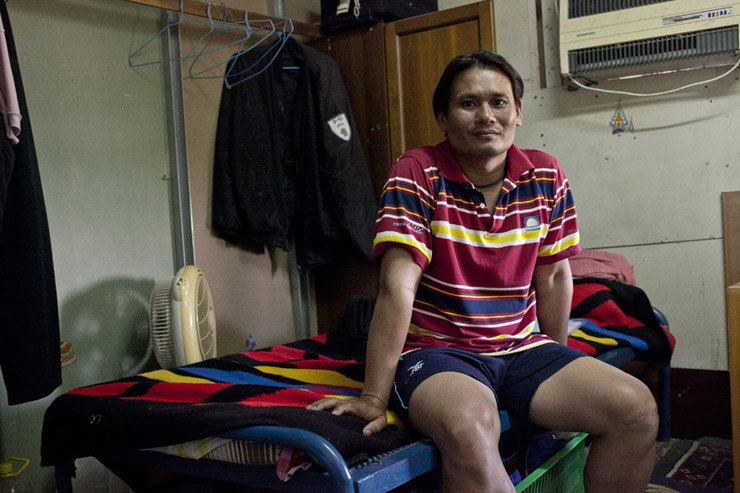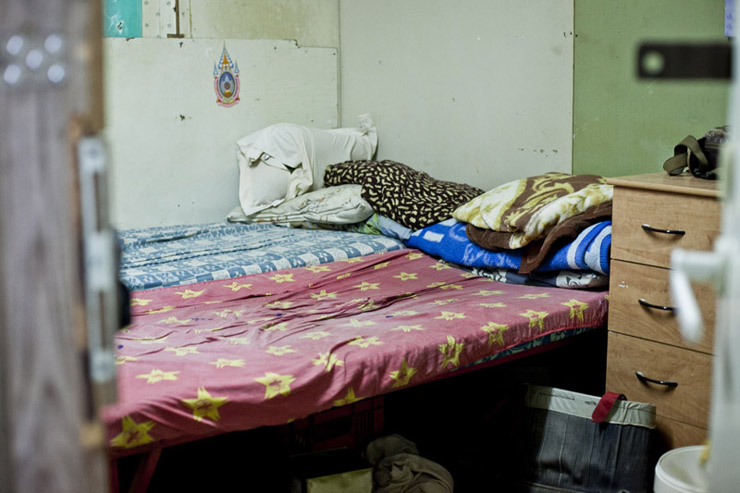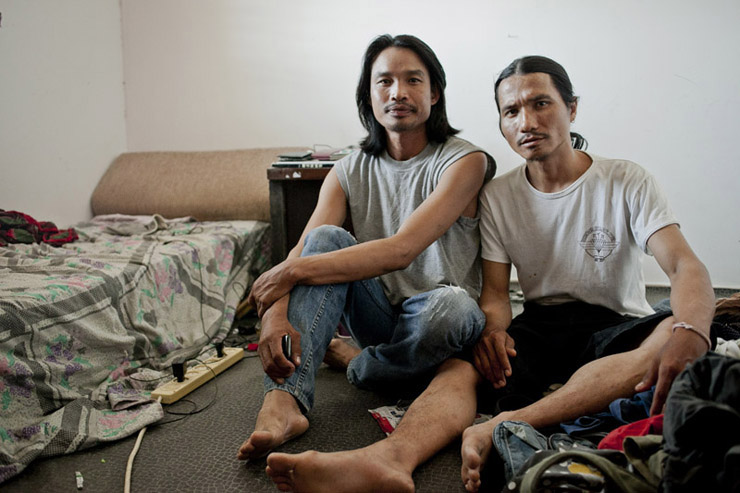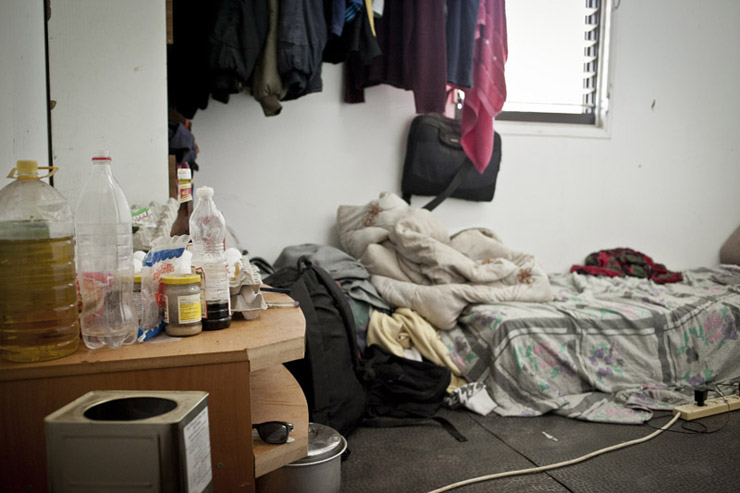In a series of posts based on field visits and meetings with migrant workers in Israel, Noa Shauer and Shiraz Grinbaum highlight the conditions, hardships and exploitation of foreign workers. In part 1, Thai agricultural workers in Kfar Varburg show ‘Kav Laoved – Workers’ Hotline’ their sub-standard living conditions and tell of their exploitative wages and working conditions.
Text by Noa Shauer
All Photos: Shiraz Grinbaum/Activestills.org
We went to Kfar Varburg late last month after Kav Laoved – Worker’s Hotline received a complaint regarding substandard accommodations and withholding of minimum wage payments. We met a group of Thai workers at their residence – the backyard of their employer’s villa. Representatives of workers from other farms in the village joined to hear about their basic rights and options for realizing them. In the end, we sat down with about 40 Thai men working for 11 different Israeli employers.
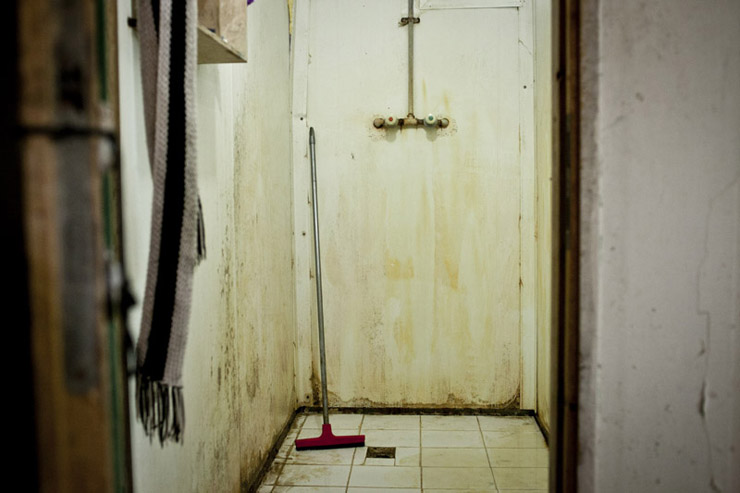
The workers at Kfar Varburg receive NIS 120-130 for a day’s work (NIS 15 to 16.25 per hour), plus NIS 18-20 for every extra hour (agricultural workers tend to work between 11 and 16 hours each day). (The minimum wage in Israel is NIS 4,300 a month, or NIS 23.12 per hour). Others told us they get a flat monthly payment of NIS 3,000 for working 200 hours. They never see a salary slip so they can’t check how their wages are calculated. Moreover, bank accounts were not opened for them, as is required by the law regulating the employment of migrant workers. That’s a familiar strategy on the part of employers in order to hide not paying them minimum wages and social rights.
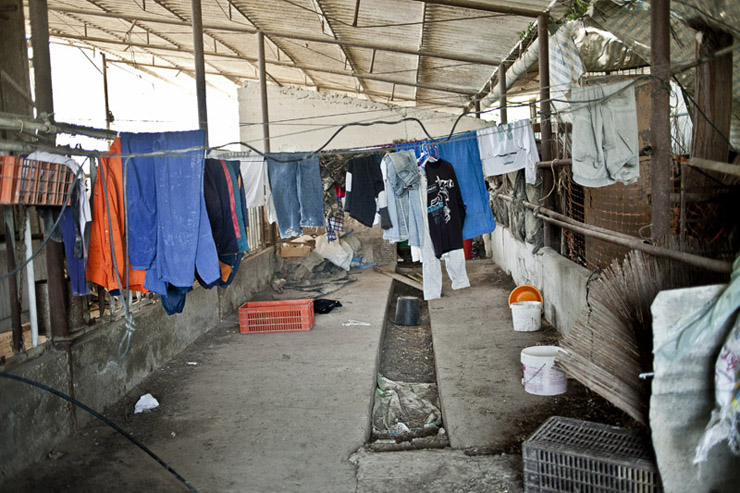
A few farms we visited grow different fruits depending on the season. Right now it is high season for those growing pomegranates, and their employees are forced to work extra hours, sometimes up to 16 hours a day. They get only a half-hour lunch break at midday. All 40 men told us that they spray the different fruits with chemicals at least three times a week. Despite the frequent use of chemicals they are not provided with necessary protection equipment. Some of them reported dizziness after spraying the fields. None of the workers have details on their health insurance nor do they hold a membership card from an Israeli health maintenance organization, which is necessary to receive treatment.
The second major complaint was their living conditions. After the meeting we visited different farms in the village. The first structure populates nine workers and has one toilet and one shower. The kitchen is improvised, bedrooms are tiny and some don’t even have a closet. The workers told us that they tried to talk with their employer about mold in the shower and the floors, but he didn’t respond. In the third structure the workers improvised a kitchen, which is outside in an open space. They cook and eat their meals there regardless of the season and weather.
After visiting the workers in their residence for a few hours, their employer picked up on our presence and expelled us, shouting. We moved our conversation to the local park, where we discussed further options for action.
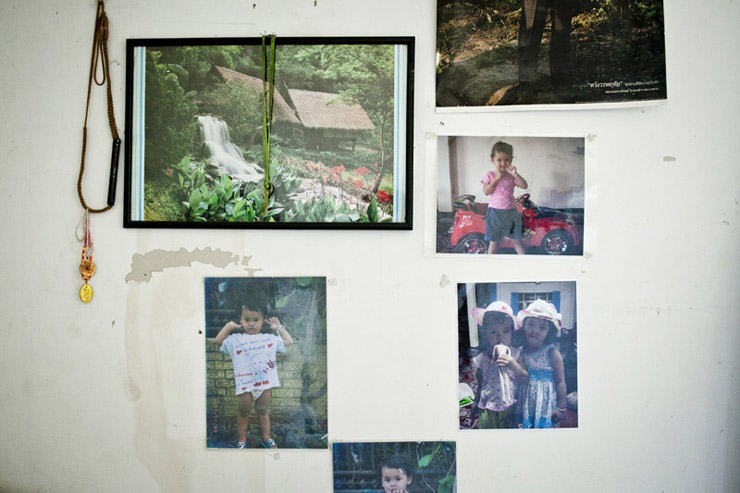
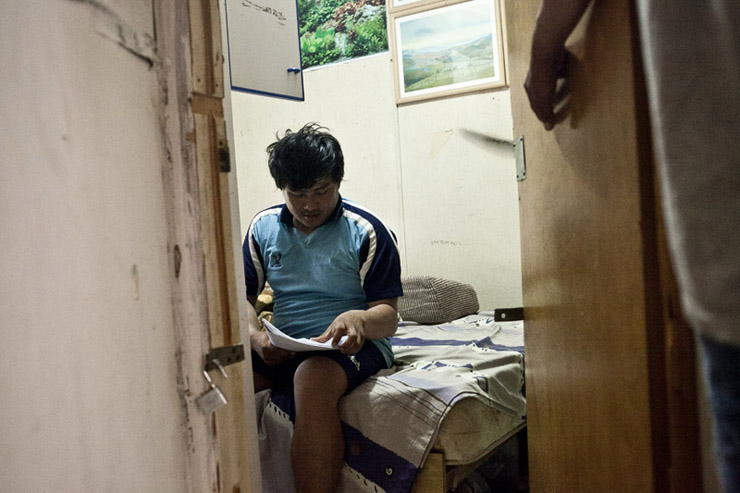
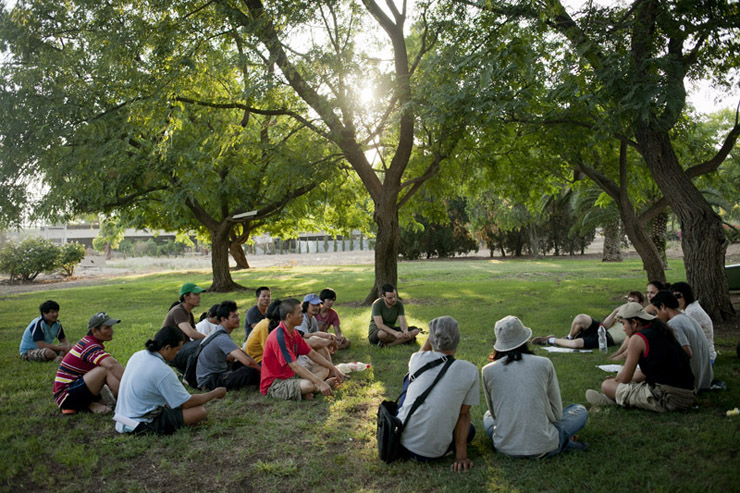
Read more:
Foreign workers take exploitative employers to court


